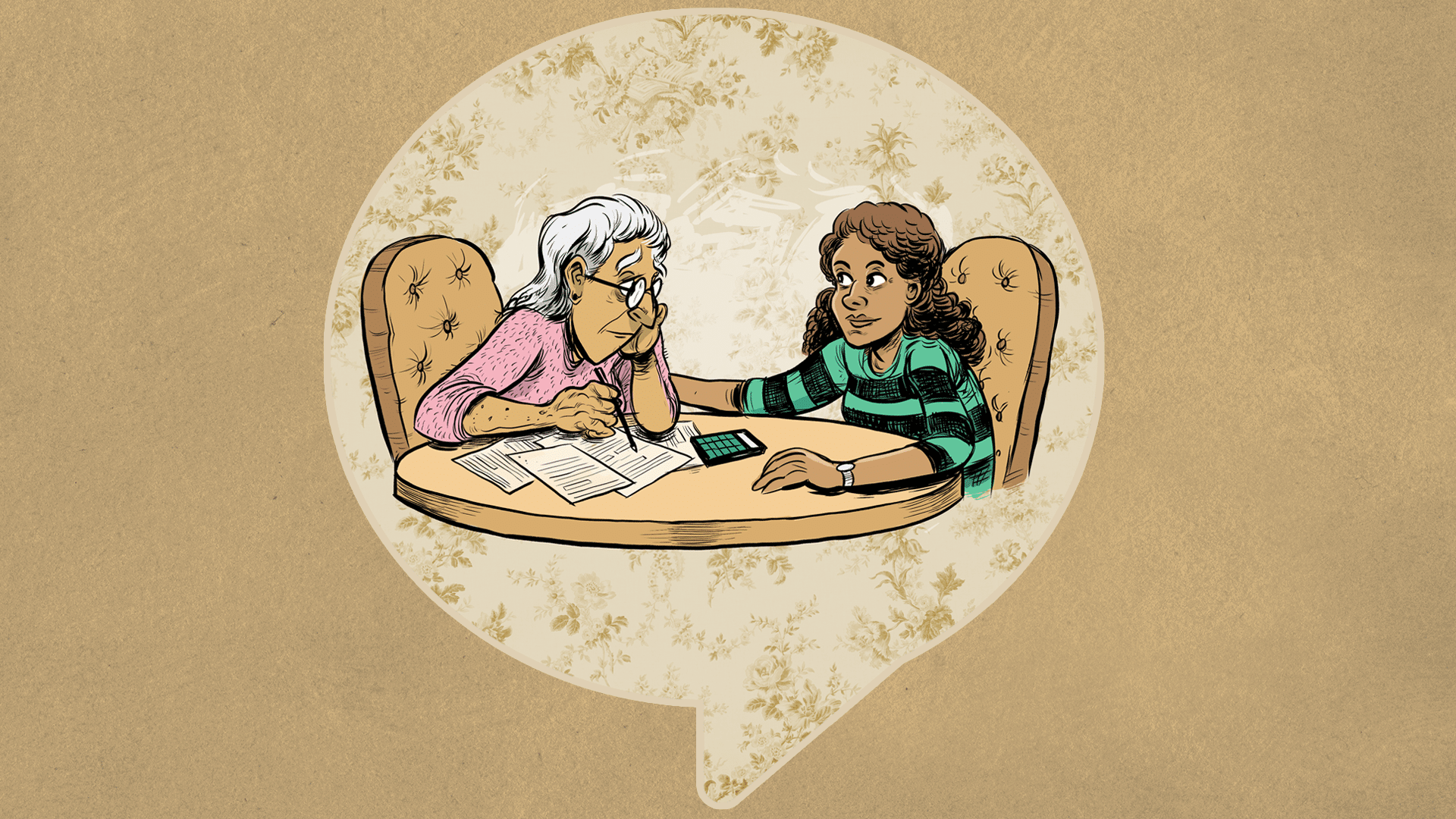
Ask MoneyTalk: I’m newly separated. Why can’t I stop worrying about money?
For women, the stress of a separation or divorce can be compounded by the financial wreckage left after a relationship ends. Add record-high household debt levels and even high-earning women may feel the effects of financial stress that impacts their mental health.
Originally published in November 2021

DR. NASREEN KHATRI
Clinical Psychologist and Neuroscientist
Statistically speaking, around 40% of marriages will end in divorce.1 Those who have been through it will tell you that the financial impact can be shattering. As you may already know, the divorce process requires you and your former partner to go through your finances with a fine-tooth comb and legally declare everything you own and owe. Over the course of a decades-long marriage, that can be an extensive list, and many women may not know where they stand financially until years after the initial split.
For example, as you go through your finances, there may be one or a series of surprises: Your debt load may be higher than expected, or the value of your home or pension may be less than you had thought, which can complicate your financial future and contribute to your overall anxiety level.
Divorce can also look very different, depending on your age and stage of life. If you find yourself suddenly single again while you are still young and without children, it may be easier to regain your financial footing. Whereas a mid-life divorce with children often coincides with a time of greatest financial and caregiving pressures for women.
It’s also important to understand that many women have a different relationship to money, compared to men. Women are often taught not to talk about money or take control of finances. We may be functionally and emotionally unprepared to be independent financial agents in the event of a divorce. In my experience, women also often think about money in terms of their relationships, and how their money impacts their loved-ones. Our financial stress is linked to our identity but also our ability to provide and be a “good” mother, daughter, etc.
What’s the solution? First, understand that you are not alone. Millions of women get divorced every year. And this year, that stress may be compounded by the pandemic, which disproportionally impacted women.
Women feel financial stress intensely and maybe more so than men. Three million jobs were lost by women during the pandemic, and we’ve seen over the past year that this kind of disruption to finances can be particularly stressful for women. The Centre for Addiction and Mental Health reported that the pandemic has caused significantly more stress for women than men. 2 Researchers have found that financial stress can be a precursor to other mental health issues, like depression and anxiety.
If you feel overwhelmed, anxious or down, for weeks on end and it is affecting your ability to function at work or home, it’s time to get that “check up from the neck up” by a registered psychologist. A psychologist is trained to assess your emotional health and provide support and help when you need it.
Secondly, a financial professional can help you to cope with the uncertainty surrounding your finances. Working with a trustworthy advisor can “outsource” some of your financial stress to someone trained and responsible for helping you understand and meet your financial obligations. Many financial professionals specialize and are accredited in divorce and separation and can provide guidance.
Sound finances and emotional well-being are important aspects of overall health. Make sure you support that with professionals who can help ease your divorce journey.
You can visit the TD Wealth for Women website to find more about how women can meet their financial goals, now and in the years ahead.
Dr. Nasreen Khatri is an award-winning registered clinical psychologist, gerontologist and neuroscientist with over 15 years of professional experience. She specializes in the assessment, treatment and research of mood and anxiety disorders in women and aging at The Rotman Research Institute in Toronto. She is also a Scientific Officer of the Centre for Aging and Brain Health Innovation at the Baycrest Centre.
















